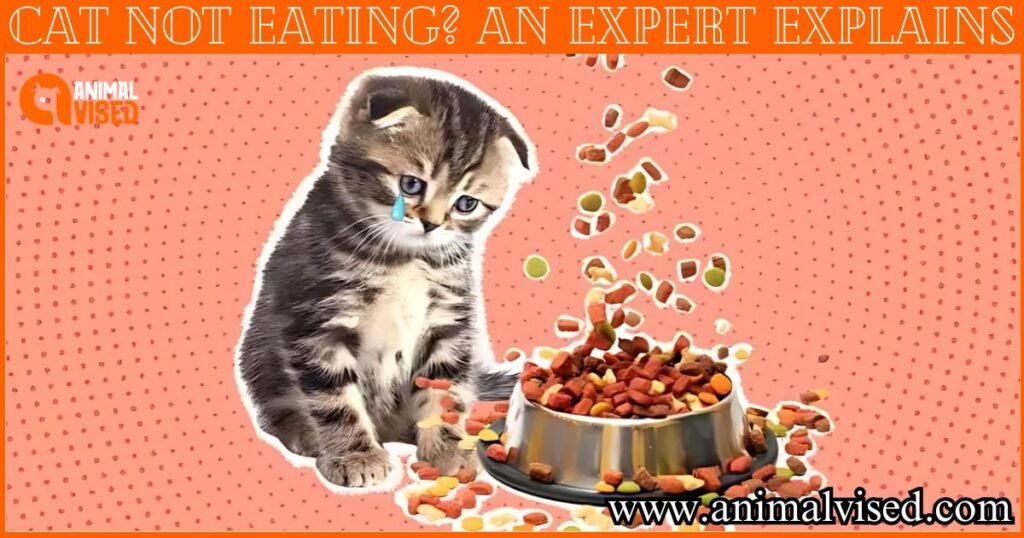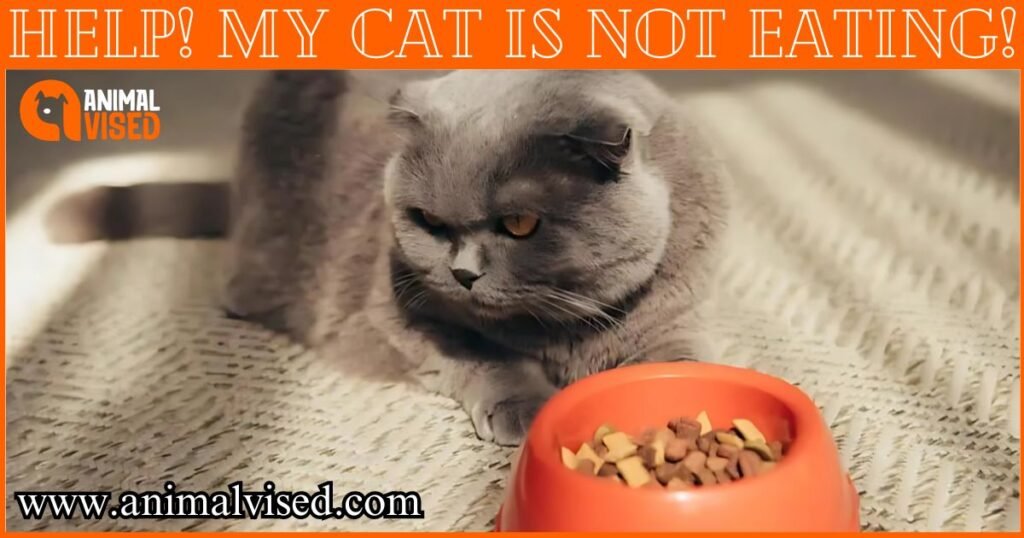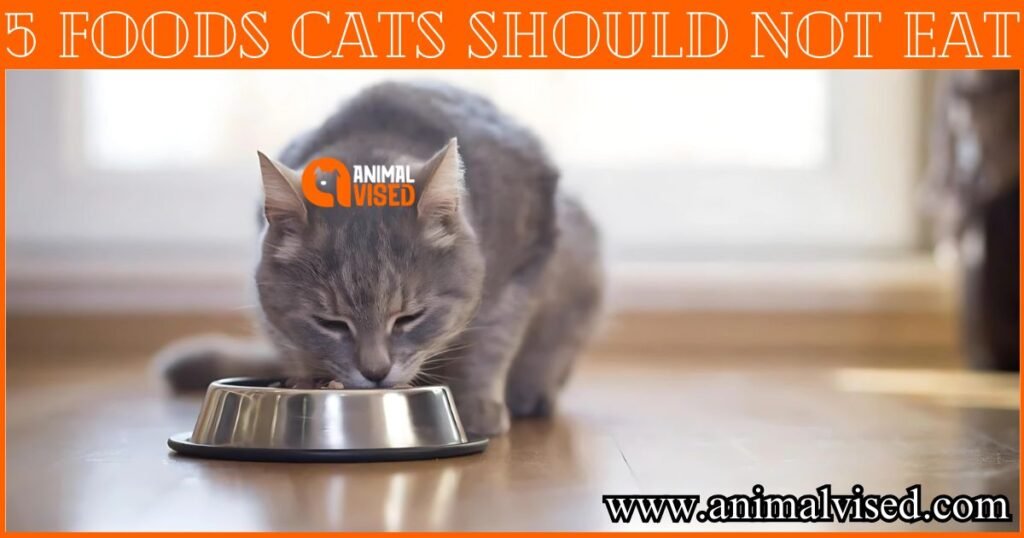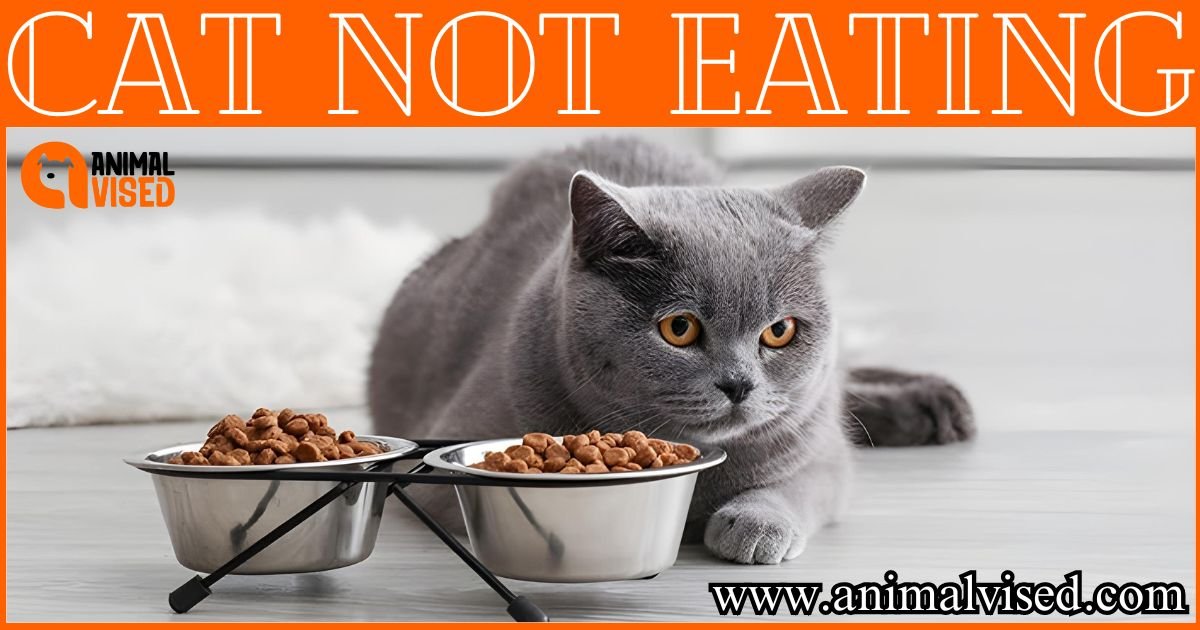If your cat has suddenly stopped Cat Not Eating, it’s important to take notice, as this can be a sign of various underlying issues. A loss of appetite in cats can be caused by a range of factors, including stress, dental problems, gastrointestinal issues, respiratory infections, or more serious conditions like kidney disease, pancreatitis, or cancer. Additionally, changes in diet, medication side effects, or even psychological issues can contribute to a cat’s refusal to eat.
If you observe that your cat isn’t eating, start by ensuring the food is fresh and that your cat hasn’t developed an aversion to it. Offer different types of food and create a calm, comfortable environment to reduce stress. However, if the loss of appetite persists for more than 24 hours or is accompanied by other symptoms such as vomiting, lethargy, or changes in litter box habits, it’s crucial to consult a veterinarian. Prompt veterinary care can help identify the underlying cause and provide appropriate treatment to restore your cat’s health and appetite.
Read More: Fat Bear Week Begins

Possible Causes
- Stress or Anxiety: Changes in the environment, routine, or the introduction of new pets or family members can cause stress and lead to a loss of appetite.
- Dental Issues: Problems with teeth or gums, such as dental disease or oral pain, can make eating difficult or painful for your cat.
- Gastrointestinal Problems: Issues like constipation, diarrhea, or inflammatory bowel disease can affect your cat’s appetite.
- Foreign Body Ingestion: If your cat has swallowed something it shouldn’t have, it may not want to eat due to discomfort or obstruction.
- Respiratory Infections: Upper respiratory infections can decrease a cat’s sense of smell, which is closely linked to its appetite.
- Kidney Disease: This is common in older cats and can cause a loss of appetite.
- Pancreatitis: Inflammation of the pancreas can lead to a decreased appetite.
- Liver Disease: Various liver conditions can affect your cat’s desire to eat.
- Diabetes: Changes in blood sugar levels can impact a cat’s appetite.
- Cancer: Certain types of cancer can cause a loss of appetite.
- Medication Side Effects: Some medications can have side effects that include a decreased appetite.
- Recent Vaccination: Some cats may lose their appetite temporarily after receiving vaccinations.
- Parasites: Intestinal worms or other parasites can cause a cat to stop eating.
- Food Quality or Preference: A cat may refuse to eat if it doesn’t like the food or if the food has gone bad.
- Psychological Issues: Some cats may stop eating due to depression or other psychological issues.
What to Do
- Observe Your Cat: Pay close attention to your cat’s behavior. Note any other symptoms, such as lethargy, vomiting, or changes in litter box habits.
- Check the Food: Ensure that the food is fresh and that your cat hasn’t developed a sudden aversion to it.
- Offer Different Food: Try offering a different type or brand of cat food to see if your cat’s appetite improves.
- Create a Calm Environment: Reduce stress by providing a quiet, comfortable space for your cat to eat.
- Consult a Veterinarian: If your cat’s loss of appetite persists for more than 24 hours, it’s crucial to consult a veterinarian. They can perform a thorough examination and run tests to determine the underlying cause.
When to Seek Immediate Help
If your cat exhibits any of the following symptoms along with a loss of appetite, seek immediate veterinary care:
- Vomiting or diarrhea
- Lethargy or weakness
- Difficulty breathing
- Changes in urination or defecation
- Signs of pain or discomfort
Cat Not Eating Much but Acting Normal
If your cat is not eating much but otherwise seems to be acting normally, it could be due to several reasons:
- Picky Eater: Some cats are simply picky eaters and may not like the food you’re offering.
- Stress: Minor changes in the environment or routine can cause stress, leading to a temporary decrease in appetite.
- Dental Issues: Even if your cat seems normal, dental problems can make eating uncomfortable.
- Age: As cats age, their appetite may naturally decrease.
- Weather Changes: Some cats may eat less during hot weather.
While it’s reassuring that your cat is acting normally, it’s still important to monitor their eating habits. If the reduced appetite persists for more than a day or two, consult your veterinarian.
When to Seek Veterinary Care
Many of the potential reasons for your cat to lose their appetite are serious medical concerns. Your vet can help to determine the cause and best plan of treatment.
The reasons why your cat has stopped eating can vary greatly, but despite the cause, it’s important to bring your cat to your vet if it lasts more than 24 hours. It’s also extremely important to monitor and contact your vet if they are not drinking or are displaying other symptoms or behavioral changes.
Why Is My Cat Not Eating and Sleeping a Lot?
If your cat is not eating and sleeping more than usual, it could be a sign of an underlying health issue:
- Illness: Conditions like infections, kidney disease, or pancreatitis can cause a loss of appetite and increased sleepiness.
- Pain: Your cat may be in pain, which can make eating uncomfortable and cause them to sleep more.
- Depression: Cats can experience depression, which can lead to a loss of appetite and increased sleeping.
- Side Effects of Medication: Some medications can cause lethargy and a decreased appetite.
If your cat is not eating and sleeping a lot, it’s important to consult your veterinarian to rule out any serious health issues.
Cat Not Eating or Drinking for 3 Days
If your cat has not eaten or drunk anything for three days, this is a serious concern and requires immediate veterinary attention. Prolonged lack of food and water can lead to dehydration, malnutrition, and other complications. Possible causes include:
- Serious Illness: Conditions like kidney failure, liver disease, or cancer can cause a complete loss of appetite and thirst.
- Obstruction: A foreign body or intestinal blockage can prevent your cat from eating or drinking.
- Dental Issues: Severe dental problems can make eating and drinking painful.
Do not wait; take your cat to the veterinarian immediately if they have not eaten or drunk for three days.
How can I get my cat to eat?
There are several things you can try to see if your cat will begin eating again.
- Considering stress can be a cause, ensure their dish is in a quiet area.
- Check to make sure both their food and water bowls are clean.
- Give them canned or “wet” food, or meat baby food.
- Try drenching their solid food with the juice from a tuna can.
- Cat’s don’t like cold food, so you can try heating it (just be sure to mix carefully after to avoid overly-hot areas).
Cat Not Eating but Purring
If your cat is not eating but still purring, it could be a sign of comfort or contentment despite the loss of appetite. However, it’s important to consider the following:

- Pain: Some cats purr when they are in pain as a coping mechanism.
- Stress: Purring can also be a sign of stress or anxiety, which can affect appetite.
- Underlying Health Issue: Even if your cat seems content, there could be an underlying health issue causing the loss of appetite.
While purring is generally a positive sign, it’s still crucial to monitor your cat’s eating habits and consult a veterinarian if the loss of appetite persists.
What to Feed a Sick Cat That Won’t Eat
If your cat is sick and won’t eat, it’s important to offer foods that are easy to digest and appealing:
- Wet Food: Canned or wet food is often more palatable and easier to digest for sick cats.
- Baby Food: Unseasoned, meat-based baby food can be a good option.
- Chicken Broth: Low-sodium chicken broth can provide hydration and some nutrients.
- Cooked Chicken or Fish: Small pieces of cooked, unseasoned chicken or fish can be tempting for some cats.
- Prescription Diets: Your veterinarian may recommend a prescription diet designed for cats with specific health issues.
Always consult your veterinarian before making significant changes to your cat’s diet, especially if they are sick.
Cat Not Eating Reddit
Reddit can be a valuable resource for pet owners seeking advice and support. If you’re looking for information on why your cat isn’t eating, you can find numerous threads and discussions on subreddits like r/cats, r/AskVet, and r/PetAdvice. Here are some tips for using Reddit:
- Search Existing Posts: Before creating a new post, search for existing discussions on the topic.
- Provide Details: When asking for advice, provide as many details as possible about your cat’s behavior, symptoms, and any recent changes.
- Consult a Veterinarian: While Reddit can offer helpful insights, it’s important to consult a veterinarian for professional advice.
Cat Not Eating but Drinking Water
If your cat is not eating but still drinking water, it’s a positive sign that they are staying hydrated. However, it’s still important to address the loss of appetite:
- Gastrointestinal Issues: Conditions like constipation, diarrhea, or inflammatory bowel disease can affect appetite but not thirst.
- Dental Problems: Dental issues can make eating painful but not affect drinking.
- Stress or Anxiety: Environmental changes or stressors can cause a loss of appetite but not affect water intake.
While it’s good that your cat is drinking water, it’s still crucial to consult a veterinarian if the loss of appetite persists for more than a day or two.
Conclusion:
A cat not eating can be a sign of various issues, ranging from minor to serious. It’s essential to monitor your cat’s behavior and consult a veterinarian if the loss of appetite persists or is accompanied by other symptoms. Early intervention can help identify and address underlying health issues, ensuring your cat’s well-being and happiness. At Animal Vised, we understand the importance of your cat’s health and encourage you to seek professional advice if you notice any changes in your cat’s eating habits.
Read More: Cat Not Eating
FAQs:
Q: What are some common reasons why a cat might not be eating?
A: Common reasons include stress, dental issues, gastrointestinal problems, respiratory infections, kidney disease, pancreatitis, liver disease, diabetes, cancer, medication side effects, recent vaccinations, parasites, food quality or preference, and psychological issues.
Q: How long can a cat go without eating?
A: A cat can typically go without eating for up to 24 hours without serious consequences. However, if the loss of appetite persists beyond this period, it’s crucial to consult a veterinarian.
Q: What should I do if my cat is not eating but acting normally?
A: If your cat is not eating much but acting normally, monitor their behavior and try offering different types of food. If the reduced appetite persists for more than a day or two, consult your veterinarian.
Q: Why is my cat not eating and sleeping a lot?
A: This could be a sign of an underlying health issue such as illness, pain, depression, or side effects of medication. Consult your veterinarian to rule out any serious health problems.
Q: What should I do if my cat is not eating or drinking for 3 days?
A: If your cat has not eaten or drunk anything for three days, this is a serious concern and requires immediate veterinary attention. Prolonged lack of food and water can lead to dehydration and other complications.
Q: Why is my cat not eating but purring?
A: Purring can be a sign of comfort or contentment, but it can also be a coping mechanism for pain or stress. While purring is generally positive, it’s still crucial to monitor your cat’s eating habits and consult a veterinarian if the loss of appetite persists.
Q: What can I feed a sick cat that won’t eat?
A: You can try offering wet food, unseasoned baby food, low-sodium chicken broth, cooked chicken or fish, or prescription diets recommended by your veterinarian. Always consult your veterinarian before making significant changes to your cat’s diet.
Q: Can I find helpful advice on Reddit for my cat not eating?
A: Yes, Reddit can be a valuable resource for pet owners seeking advice and support. Subreddits like r/cats, r/AskVet, and r/PetAdvice can offer helpful insights, but it’s important to consult a veterinarian for professional advice.
Q: Is it a good sign if my cat is not eating but drinking water?
A: Yes, it’s a positive sign that your cat is staying hydrated. However, it’s still important to address the loss of appetite. Consult a veterinarian if the loss of appetite persists for more than a day or two.
Q: When should I worry about my cat not eating?
A: You should worry about your cat not eating if the loss of appetite persists for more than 24 hours, is accompanied by other symptoms, is sudden and complete, or results in weight loss. Consult your veterinarian promptly if you notice any of these signs.
Q: Can stress cause a cat to stop eating?
A: Yes, stress can cause a cat to stop eating. Changes in the environment, routine, or the introduction of new pets or family members can lead to stress and a loss of appetite.
Q: What should I do if my cat has dental issues and is not eating?
A: If your cat has dental issues, consult your veterinarian for a thorough examination and appropriate treatment. Offering soft, easy-to-chew food can help in the meantime.
Q: Can a recent vaccination cause a cat to stop eating?
A: Yes, some cats may lose their appetite temporarily after receiving vaccinations. If the loss of appetite persists for more than a day or two, consult your veterinarian.
Q: What should I do if my cat is not eating due to gastrointestinal problems?
A: Consult your veterinarian for a thorough examination and appropriate treatment. Offering a bland diet and ensuring your cat stays hydrated can help in the meantime.
Q: Can kidney disease cause a cat to stop eating?
A: Yes, kidney disease can cause a loss of appetite in cats. Consult your veterinarian for a thorough examination and appropriate treatment.
Q: What should I do if my cat is not eating due to pancreatitis?
A: Pancreatitis requires immediate veterinary care. Your veterinarian may recommend a low-fat diet and other treatments to manage the condition.
Q: Can diabetes cause a cat to stop eating?
A: Yes, changes in blood sugar levels due to diabetes can affect a cat’s appetite. Consult your veterinarian for a thorough examination and appropriate treatment.
Q: What should I do if my cat is not eating due to cancer?
A: Cancer requires immediate veterinary care. Your veterinarian can provide appropriate treatment and recommend a diet that supports your cat’s health.
Q: Can medication side effects cause a cat to stop eating?
A: Yes, some medications can cause a cat to lose its appetite. Consult your veterinarian if you suspect medication side effects are affecting your cat’s appetite.
Q: What should I do if my cat is not eating due to parasites?
A: Consult your veterinarian for a thorough examination and appropriate treatment. Your veterinarian can prescribe medication to eliminate the parasites.
Q: Can a cat’s food quality or preference affect its appetite?

A: Yes, a cat may refuse to eat if it doesn’t like the food or if the food has gone bad. Try offering different types of food to see if your cat’s appetite improves.
Q: What should I do if my cat is not eating due to psychological issues?
A: Consult your veterinarian for advice on managing psychological issues. Creating a calm, comfortable environment and offering favorite foods can help improve your cat’s appetite.










